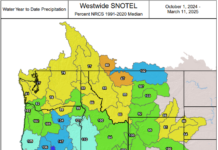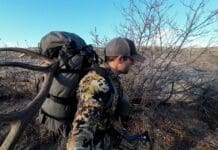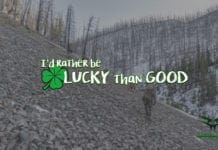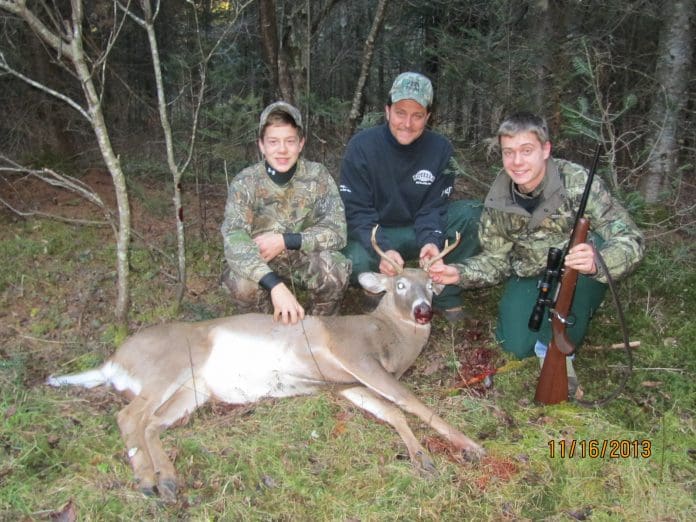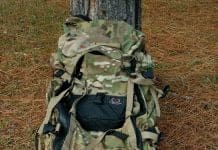The Importance of Recruiting New Hunters
By Hunter Cole, Rokslide member
At one time or another, all of us were non-hunters. Although some step into the hunting community with little to no guidance from others, the vast majority of us had mentors that introduced us to the hunting lifestyle and taught us the basics of successfully taking game.
For many, a parent, close relative, or neighbor filled the role of mentor, teaching basic fieldcraft skills, hunting techniques, ethics, and many other important aspects of being a successful and safe hunter. No matter who they were, these mentors play a crucial role in new hunter recruitment. There are many benefits of new hunter recruitment, both to the new hunter themselves, as well as larger groups of individuals that are involved with outdoor activities.
Among many other benefits that a person stands to gain from taking up hunting, one of the most obvious is the clean protein that can be obtained from harvesting a wild animal. Hunting allows the average Joe to obtain free-range, natural, organic, and fresh meat. In a world where most affordable meat is filled with a plethora of unnatural substances and the animals from which the meat comes are treated very poorly, natural meat that is healthy is nothing to scoff at. By introducing a friend or family member to hunting, you will be opening the door for them to harvest affordable, nutritious, high quality wild game for their family and friends. And perhaps if you have a rough year in the woods and don’t get that monster buck or bull you are after, your mentee might throw you some extra steaks to get you through the winter!
What about those sky-high numbers we see thrown around about the true expense of obtaining wild game meat once gear, fuel, and licenses are factored in? The way I see it, hunting is both a form of recreation and a way of procuring meat, so apples to apples, the comprehensive cost of a lifestyle that involves organic, free-range food is cheaper for a hunter because they likely don’t have substantial recreational costs in addition to the cost of that meat. A hunter’s recreational costs (tags, equipment, travel) generally yield a return of high quality meat, while non-hunters must pay a high price for that meat at the store on top of the money they spend on recreational activities that yield no tangible return like motorsports, luxurious vacations, and other forms of entertainment.
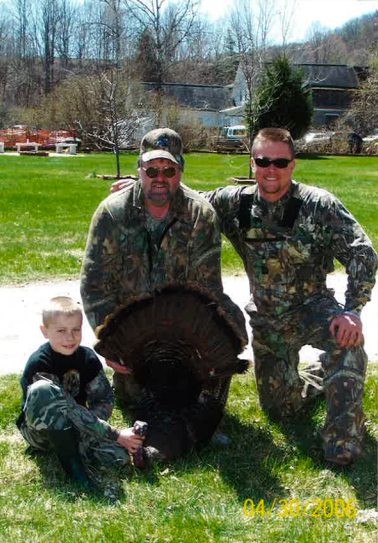
The author on his first turkey hunt at age eight, alongside his grandfather and father
Also, by introducing someone to hunting, you are giving them an activity to participate in for the rest of their lives that also keeps them active, happy, and healthy. The physical health benefits of hiking through the mountains every weekend of elk season are clear, but many studies have proven that time in the great outdoors improves cognitive function, increases overall happiness, and decreases stress and tension.
In addition to the personal benefits that someone new to hunting may gain, all those who value natural resources experience many benefits from new hunter recruitment. In a strictly economic sense, more new hunters mean more license fees, conservation stamps, and donations that will help fund future conservation efforts, both on a state and federal level. Future generations of hunters will play a much more important role in conservation than just funding conservation, though. They will also be stewards of the public lands on which they recreate by ensuring that the proper actions are taken to protect the public status of many areas, maintaining the infrastructure of those public lands, and being tools of conservation used to sustain healthy wildlife populations.
The hunting community stands to gain a great deal from more new hunters. The future of the lifestyle we lead has never been more threatened. Many non-hunters inaccurately perceive hunting as an illegitimate activity. These individuals that oppose hunting due to a poor perception of what it truly is jeopardize the future of sustainably harvesting wild game by supporting anti-hunting legislation and sharing their inaccurate image of hunting with others. By introducing individuals to hunting and allowing them to experience what goes into a hunt, they will not only have a more accurate perception of what hunting is, but they may also teach others that hunting is an important tool of conservation, puts clean protein on the tables of thousands of families around the country, including the needy, and supports small businesses in the areas in which hunting takes place, among other things.
Finally, by getting an interested individual into the woods on their first hunting trip, you are creating a hunter, conservationist, and naturalist who will ensure that the hunting lifestyle is around for years to come. One day, they too may be mentors that introduce a young person to the lifestyle that we all love. In their day-to-day life, they may teach their friends and family about the importance of public land to the outdoor community, or explain the benefits of hunting to their colleagues after harvesting an animal. By welcoming someone into the hunting community, you are helping ensure that many generations to come will be able to live an outdoor lifestyle, and support the conservation of wildlife and the places they live through hunting.
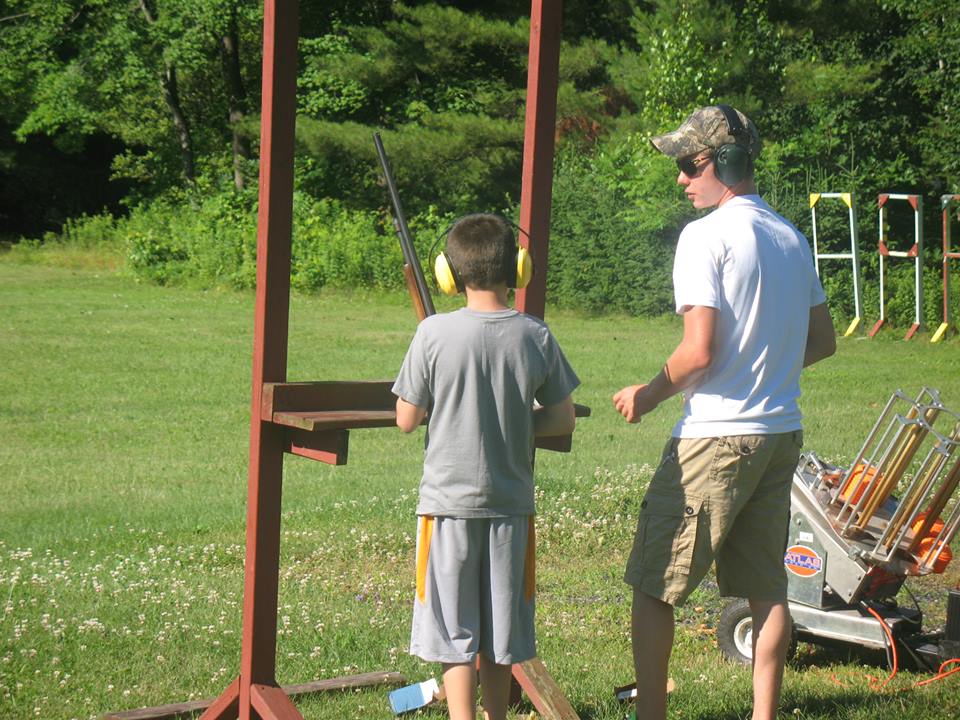
It should be clear that there is a great deal to gain from introducing someone you know to hunting. I am urging those reading this to consider taking someone interested in hunting into the woods with them. It might reduce your chances of success and it may even be frustrating at times, but by doing so, you will ensure that hunting and conservation in America remains strong.
There was a time when many of us were just clueless kids trying to figure out how to be like our hunting heroes that showed us how to shoot a bow or how to walk through the mountains without scaring off every animal within a square mile. Be one of those heroes to someone and take them out hunting. You’ll be glad you did.
You can ask Hunter questions or discuss this article here





